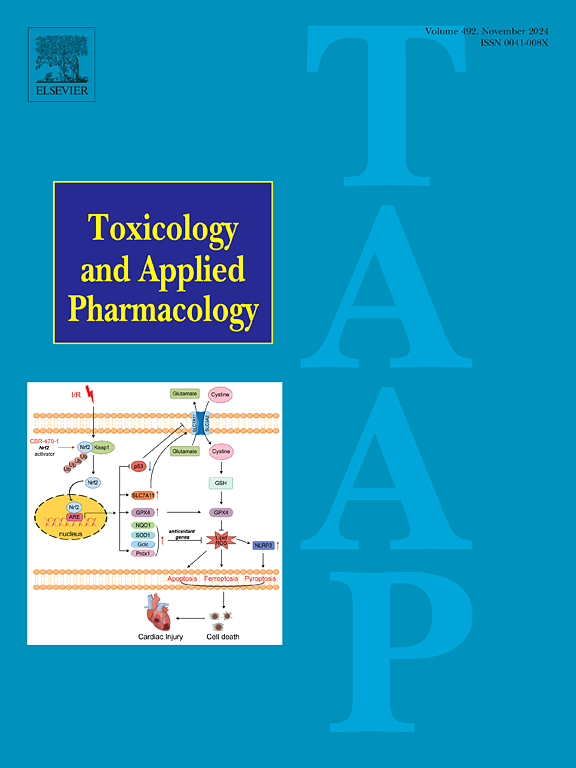不同胃酸抑制剂对慢性不可预测轻度应激诱发的大鼠认知障碍的影响:肠道菌群失调的可能参与
IF 3.4
3区 医学
Q2 PHARMACOLOGY & PHARMACY
引用次数: 0
摘要
最近,临床证据表明,胃酸抑制剂与认知障碍和痴呆症的发病风险增加有关,尤其是在老年患者和轻度认知障碍患者中。因此,本研究旨在探讨法莫替丁(Famo)、埃索美拉唑(Esomeprazole)和沃诺普拉赞(Vonoprazan)等不同胃酸抑制剂在没有或有慢性不可预测轻度应激(CUMS)的情况下对几种记忆任务的影响,并考察肠道菌群失调的作用。在本研究中,大鼠接受法莫替丁(3.7毫克/千克/天,口服)或埃索美拉唑(3.7毫克/千克/天,口服)或沃诺普拉赞(1.85毫克/千克/天,口服)治疗7周,同时接受或不接受CUMS治疗。值得注意的是,在本次调查中,含有不同抑酸剂的CUMS会导致晚期CUMS的所有记忆任务显著下降。与单独使用 CUMS 相比,使用抑酸剂的 CUMS 还明显改变了粪便中的固着菌/类杆菌比例。这种肠道微生物组的改变与肠道膜完整性的改变有关,结肠组织病理学和全身炎症标志物的升高都表明了这一点。此外,我们还注意到海马淀粉样蛋白β和p-tau蛋白的上调以及大脑组织病理学的改变。我们的研究结果支持胃酸抑制剂(尤其是质子泵抑制剂)在压力下对认知障碍的有害影响,这可能与肠道菌群失调有关。本文章由计算机程序翻译,如有差异,请以英文原文为准。
Impact of different gastric acid suppressants on chronic unpredictable mild stress-induced cognitive impairment in rats: A possible involvement of gut dysbiosis
Recently, clinical evidence indicates that gastric acid suppressants are associated with an increased risk of the development of cognitive impairment and dementia, especially in elderly patients and those with mild cognitive impairment. Therefore, the aim of this research was to explore the impact of different gastric acid suppressants use, famotidine (Famo), esomeprazole (Esome) and vonoprazan (Vono) in the absence or the presence of chronic unpredictable mild stress (CUMS) on several memory tasks with examination of the role of gut dysbiosis. In the present study, rats received famotidine (3.7 mg/kg/day, p.o.) or esomeprazole (3.7 mg/kg/day, p.o.) or vonoprazan (1.85 mg/kg/day, p.o.) for 7 weeks with or without exposure to CUMS. Remarkably, CUMS with different acid suppressants caused a significant decrease in all memory tasks in late CUMS in the current investigation. CUMS with acid suppressants also revealed a marked alteration in the fecal Firmicutes/Bacteroidetes ratio compared to CUMS alone. This gut microbiome alteration was associated with an alteration in gut membrane integrity, as revealed by colonic histopathology and an elevation of systemic inflammatory markers. Besides, upregulation of hippocampal amyloid β and p-tau proteins and modification of brain histopathology were noticed. Our findings support the detrimental effect of gastric acid suppressants, especially proton pump inhibitors, on cognitive impairment in the presence of stress, with the possible involvement of gut dysbiosis.
求助全文
通过发布文献求助,成功后即可免费获取论文全文。
去求助
来源期刊
CiteScore
6.80
自引率
2.60%
发文量
309
审稿时长
32 days
期刊介绍:
Toxicology and Applied Pharmacology publishes original scientific research of relevance to animals or humans pertaining to the action of chemicals, drugs, or chemically-defined natural products.
Regular articles address mechanistic approaches to physiological, pharmacologic, biochemical, cellular, or molecular understanding of toxicologic/pathologic lesions and to methods used to describe these responses. Safety Science articles address outstanding state-of-the-art preclinical and human translational characterization of drug and chemical safety employing cutting-edge science. Highly significant Regulatory Safety Science articles will also be considered in this category. Papers concerned with alternatives to the use of experimental animals are encouraged.
Short articles report on high impact studies of broad interest to readers of TAAP that would benefit from rapid publication. These articles should contain no more than a combined total of four figures and tables. Authors should include in their cover letter the justification for consideration of their manuscript as a short article.

 求助内容:
求助内容: 应助结果提醒方式:
应助结果提醒方式:


